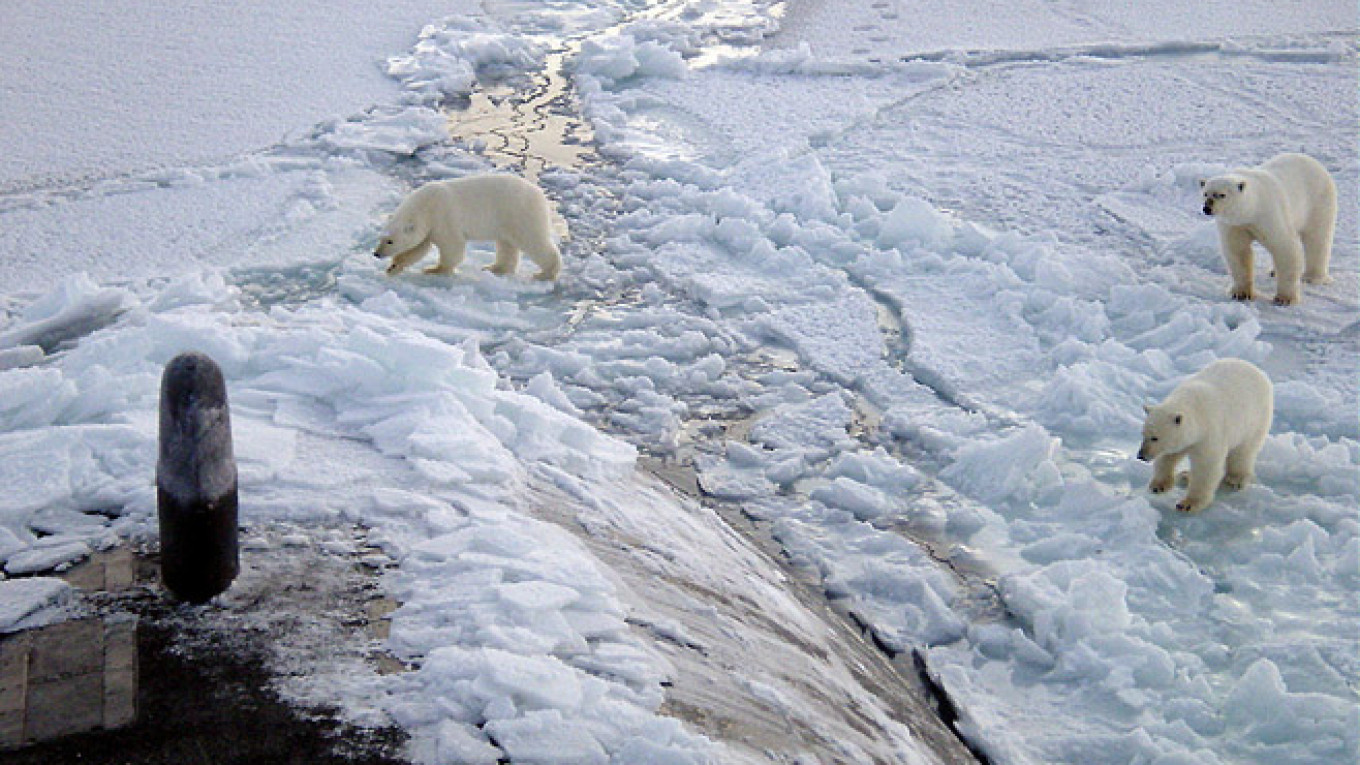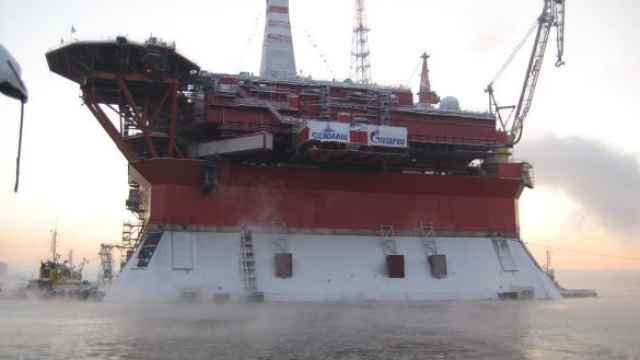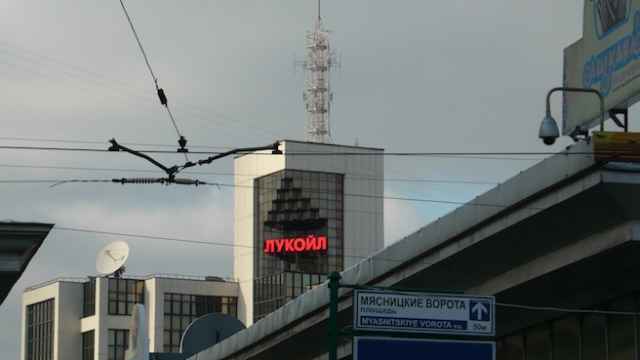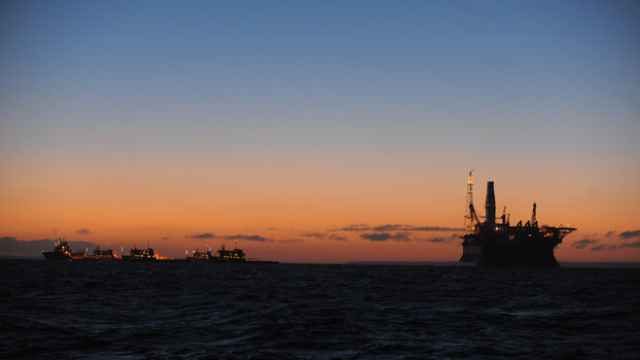Igor Sechin, the most influential figure in Russia's energy industry, announced last week that a new oil field discovered in the Arctic was to be christened "Pobeda" — the Russian word for victory.
Speaking to reporters from a blustery drilling platform, the Kremlin heavyweight, who also heads state-owned oil giant Rosneft, waxed lyrical about the future of Arctic oil.
But the name, and the gushing words, may be a bit premature.
The drilling of the exploratory well, Universitetskaya-1, that has even prompted Sechin to compare the resource base of the Kara Sea to that of Saudi Arabia, would not have been possible without the technical experience and know-how of foreign companies working alongside Rosneft.
Foreign oil companies were suddenly blocked from working in the Russian Arctic last month by U.S. and European Union sanctions on Moscow for the Kremlin's role in the Ukraine crisis.
It is unclear how long sanctions will be in place, but Rosneft's lack of experience in developing offshore fields — particularly in the icy and dangerous seas off Russia's northern coast — means that Western companies' input is crucial.
"The development of this project over the next few years without the participation of foreign partners in impossible," said Andrei Polishchuk, an oil analyst at Raiffeisen Bank in Moscow.
Just an Inconvenience?
Oil major ExxonMobil, Rosneft's partner in the Kara Sea development, received a brief extension from the U.S. Treasury last month in order to safely close down the Universitetskaya-1 well, which reportedly cost in excess of $700 million, without violating sanctions that entered force on Sept. 26.
Rosneft has been hit by sanctions that prevent it from accessing capital markets abroad. Sechin has personally been subjected to a travel ban and asset freezes by Washington.
But analysts said that the impact of sanctions in the Arctic would be limited — at least for the moment. The drilling season in the polar regions lasts about three months and has now ended. It will not resume until the ice has sufficiently melted in early June.
"At the moment it's an inconvenience, not a big impact," said James Henderson, a senior research fellow at the Oxford Institute for Energy Studies.
"The real impact will be next year when they go back to drill."
Harder Than Space Travel
No company in the world has yet achieved the commercial production of oil in the offshore Arctic, which is beset by intense logistical difficulties, high costs and ecological risks.
Talking on the drilling platform last month, Sechin admitted the difficulties. "If you are taking about drilling in the Kara Sea and the shelf in general, then the project is significantly more complicated than atomic projects or the exploration of space," he told television channel Rossia-24.
The difficulties mean that Rosneft was obliged to pull in foreign partners — signing a $3.2 billion deal with Exxon in 2011. Exxon has experience working offshore and is the operator on the Sakhalin-1 project in the harsh climates of Russia's Far East.
Russian officials do not shy away from admitting to the domestic oil industry's reliance on foreign equipment and knowledge. Sechin has made a point of thanking Rosneft's foreign partners.
"Our joint victory," Sechin said last month on the drilling rig, "was achieved thanks to our friends and partners from ExxonMobil, Nord Atlantic Drilling, Schlumberger, Halliburton, Weatherford, Baker, Trendsetter, and FMC," according to a statement on Rosneft's site.
Rosneft Alone?
Despite the long list of foreign firms, both Sechin and Russian Energy Minister Alexander Novak have said that Western sanctions will not deter Rosneft from pursuing its Arctic plans.
"We will continue working no matter what," Sechin told Bloomberg last month.
Rosneft is planning to drill up to 40 exploration wells in Russia's offshore regions, including the Barents Sea and Sea of Okhotsk with Exxon, Italy's Eni and Norway's Statoil by the end of 2018.
Sechin said in August that Rosneft will spend $400 billion on developing the Arctic shelf through 2030. The company has requested 1.5 trillion rubles ($40.6 billion) from the government to help it deal with the consequences of sanctions.
The oil giant even took steps to secure sophisticated equipment in advance of sanctions. Rosneft is expected to finalize a deal to acquire a 30 percent stake in Norwegian rig operator North Atlantic Drilling later this year giving it ownership of drilling rigs that could be used in the Arctic.
Experts say, however, that this is too little too late, maintaining that sanctions mean Rosneft's ambitious plans cannot be fulfilled by importing equipment from Asia or boosting the domestic oil services industry. Nor does heavily indebted Rosneft, barred from European and U.S. capital markets, have enough ready cash.
"Without the help of Western contractors Rosneft does not have the required competence. … It would be extraordinarily risky," Henderson said. "This is not the sort of project you can do alone."
Declining Production
Addressing delegates at an international conference about the Arctic in the northern city of Salekhard last year, President Vladimir Putin described Russia as "the biggest Arctic power" and promised an "era of industrial breakthrough" in the polar regions.
As well as being a flagship Kremlin project, Arctic oil is also slated to help shore up crude production figures in Russia that is facing declining flow rates at historic fields in western Siberia.
Russian oil output expanded 1 percent year-on-year in 2013 but could fall by as much as 10 percent through 2021, Moscow brokerage Aton said in a report published on Sept. 24.
"The Arctic projects being developed now could be delayed by five or ten years but that does not mean they will not be realized," said Valery Nesterov, an energy analyst at Sberbank CIB.
"It's just a question of time and efficiency," he said.
Contact the author at [email protected]
A Message from The Moscow Times:
Dear readers,
We are facing unprecedented challenges. Russia's Prosecutor General's Office has designated The Moscow Times as an "undesirable" organization, criminalizing our work and putting our staff at risk of prosecution. This follows our earlier unjust labeling as a "foreign agent."
These actions are direct attempts to silence independent journalism in Russia. The authorities claim our work "discredits the decisions of the Russian leadership." We see things differently: we strive to provide accurate, unbiased reporting on Russia.
We, the journalists of The Moscow Times, refuse to be silenced. But to continue our work, we need your help.
Your support, no matter how small, makes a world of difference. If you can, please support us monthly starting from just $2. It's quick to set up, and every contribution makes a significant impact.
By supporting The Moscow Times, you're defending open, independent journalism in the face of repression. Thank you for standing with us.
Remind me later.







